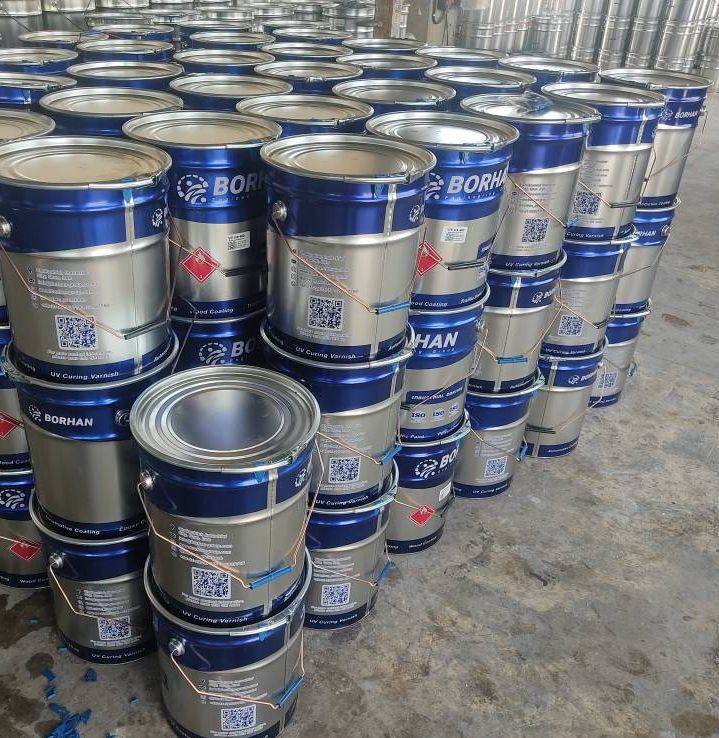Description
Details
Epoxy acrylate coatings are very popular in UV curing systems due to their excellent properties.
Some characteristics of epoxy resins:
– Electrical insulation
– good chemical resistance; Acids, bases, fats
– Very good resistance to water and humidity
– their low shrinkage compared to polyester resins
– Low sensitivity to ambient temperature during curing
– Epoxy resins can be cured at a temperature between 5 and 150 degrees Celsius depending on the type.
– Due to the molecular structure of epoxy resins (the presence of epoxide groups), they are resistant to absorbing mechanical stresses (hardness and toughness properties) and thermal stresses.
Due to the high viscosity of bisphenol A type epoxy acrylates, they are usually diluted with reactive diluents and then supplied. In addition to the mentioned aromatic epoxide precursors, aliphatic epoxy resins (which are also more expensive) also have a limited share in the market.
Epoxy acrylates are known for their high reactivity and their cured coatings show good chemical stability, their main use is in paper coatings and inks, as well as wood coatings.
Epoxy acrylates are suitable for a wide range of applications. Their combination works very well with a variety of materials such as paper for foil coating and over printing varnishes (OPV).
Epoxy acrylates and their combination with other types of resin are the first choice in the field of industrial wood, joinery, furniture and flooring as coatings. They have excellent properties for both flexible and rigid industrial plastic coatings.
Their high pigment wetting properties, flexibility and high gloss make epoxy acrylates a good choice for hard and durable paints, highly pigmented pastes and in combination with polyester or polyurethane resins for lithography and screen inks.
Ultraviolet curing thermostat resin
This resin is made on the basis of epoxy resin and vinyl ester groups, which, in addition to the extraordinary physical and mechanical properties of epoxy resin, has the ability to be cured with ultraviolet rays.
Applications:
– Paper & Plastic UV Varnish
– UV Coating for Wood
– UV inks
Principal Properties:
– Curing Fast
– High Gloss
– High Hardness
– Great Fullness
– Great Solvent Resistance
Storage Guidelines:
Store at room temperature and keep in dark place. This material should not be stored for more than 1 year
Package Information:
20KG steel bucket;
200KG steel drum.


Reviews
There are no reviews yet.